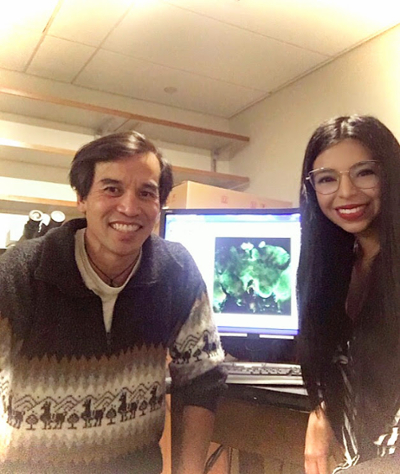IEW Spotlight: Visiting Research Scholar from Colombia

Every November, for at least 17 years, The University of Scranton has joined hundreds of universities across the country in the International Education Week (IEW) celebration, which highlights the benefits of international education and exchange worldwide.
IEW, a joint initiative of the U.S. Department of State and the U.S. Department of Education, is part of our efforts to promote programs that prepare Americans for a global environment and attract future leaders from abroad to study, learn and exchange experiences.
 This year, The Office of Global Education would like to highlight the benefits of international education through the work of a visiting research scholar from Colombia, Ms. Lina Maria García. García is a Ph.D. candidate of the biomedical and biological sciences program of the Universidad del Rosario in Colombia. She is currently on the Scranton campus doing research along with Dr. Marc Seid in the Biology Department.
This year, The Office of Global Education would like to highlight the benefits of international education through the work of a visiting research scholar from Colombia, Ms. Lina Maria García. García is a Ph.D. candidate of the biomedical and biological sciences program of the Universidad del Rosario in Colombia. She is currently on the Scranton campus doing research along with Dr. Marc Seid in the Biology Department.
García studied bee learning and memory as an undergraduate in the Biology program at the Pontificia Universidad Javeriana in Bogotá, Colombia. She later obtained her master's in biological sciences at the same university. In her last semester of the master's degree, she was awarded a doctoral fellowship by the Universidad del Rosario.
García and Seid are researching ways to pharmacologically protect honey bees and bumblebees from the negative effects of certain pesticides such as fipronil. Previous research has indicated that the bee’s brain has been affected by the sublethal exposure to fipronil and thus reducing individual and colony performance as key pollinators. Their research on bee health is key to indirectly supporting food security.
They recently presented their research at the Entomological Society of America-Annual Meeting 2021 in Denver, Colorado.






